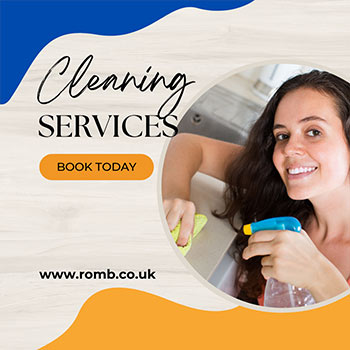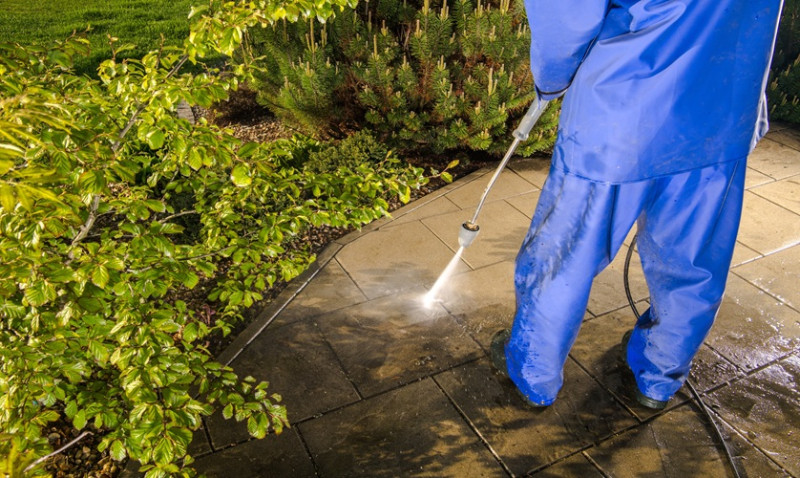
Running a cleaning business in the UK can be a rewarding and profitable venture—whether you're catering to domestic homes, commercial properties, or offering niche services like after-builders cleaning or carpet restoration. But like any service-based business, it comes with its own set of risks. Mistakes can be costly, not just financially, but also in reputation, client trust, and long-term growth. In this blog post, we'll break down the top cleaning business mistakes you must avoid to ensure lasting success.
1. Underpricing Your Services
Far too many cleaning companies fall into the trap of underpricing themselves in a bid to stay competitive. While offering affordable rates might win you customers initially, it can have disastrous consequences long-term. Not only does it jeopardize your ability to earn a sustainable income, but it also positions your business as a "low-value" service provider.
Undercharging means you’re less likely to reinvest in quality equipment, staff training, or efficient products—corners you simply can’t cut in the cleaning industry. Especially if you're offering specialist cleaning services such as oven or end-of-tenancy cleans, your pricing must reflect the complexity and time investment involved.
Price competitively by researching your local market, understanding your ideal customer, and clearly communicating the value and professionalism you offer. Architects, designers, and thoughtful homeowners in particular are happy to pay more for reliable, insured, eco-conscious cleaners who deliver premium results.
Also, remember to factor in overhead costs like staff wages, cleaning supplies, insurance, travel expenses, and business administration when designing your pricing structure. Never undervalue your time or experience.
2. Neglecting Professional Branding and Online Presence
Would you hire a cleaner whose website looks like it hasn't been updated since the early 2000s? First impressions matter—whether it’s your website, social media profiles, business cards, or even uniforms. A strong online presence builds credibility and trust, particularly among young professionals and design-savvy homeowners who research online before making a decision.
Your cleaning business website should be simple, mobile-friendly, and SEO-optimised with clearly defined services, prices (if possible), service area, testimonials, and a call-to-action. Include real before-and-after photos, client reviews, and team bios to enhance authenticity.
Make sure your Google Business Profile is fully filled out, regularly updated, and includes accurate contact information and customer reviews. Trust is essential in this industry—people are letting you into their homes or workplaces. A poorly-designed or inactive online presence repels potential clients instead of attracting them.
If budget permits, invest in professional photography and a local web designer to build a site that positions your cleaning business as trustworthy, modern, and high-quality.
3. Failing to Invest in Proper Equipment and Supplies
Your tools and products are a reflection of your professionalism. If you're still turning up to jobs with a worn-out vacuum, weak chemicals, or outdated mop buckets, you’re limiting your efficiency and the quality of your service. For all cleaning experts in the UK—from professional tradesmen to DIY decorators—you know the difference that the right tool makes.
Cutting costs by purchasing low-quality or off-brand cleaning supplies can also lead to poor results, or worse, damage to clients' belongings. This is especially risky in environments like luxury apartments, recently renovated homes, or offices with high-end furnishings.
Opt for commercial-grade materials and eco-friendly products that deliver a deep clean without causing harm. This is especially important in eco-conscious areas like London, Manchester or Bristol, where green credentials are not only appreciated—they may be expected by law in corporate contracts.
Don’t forget: the better your equipment, the more efficient you and your team will be. Time is money. Faster clean times equal more jobs per day, happier clients, and better profits.
4. Not Having Insurance and Legal Documentation
One of the gravest mistakes you can make in the cleaning industry is overlooking insurance. Whether you're cleaning domestic kitchens or builder’s mess, there are risks: chemical exposure, broken ornaments, damaged surfaces, or injuries on-site. Without insurance, your entire business could crumble from a single claim.
Every cleaning business, regardless of size, should have public liability insurance at a minimum. If you employ others, you’re legally required to have employers' liability insurance in the UK. Additionally, consider getting coverage for equipment and professional indemnity insurance in case of any claims of negligence.
Also, make sure you and your staff are aware of GDPR policies when handling client data, and have written contracts for all long-term or scheduled cleaning services. These documents outline responsibilities, prevent disagreements, and improve professionalism.
Architects and interior designers often work in spaces that feature valuable decor, historical materials or bespoke fittings—accidents can be costly. Insurance provides both client confidence and operational security.
5. Skipping Staff Training and Background Checks&zwj:
Your cleaning business is only as strong as your team. Each cleaner you send out is a direct representative of your brand. Unfortunately, many companies skip proper training and background checks in a rush to fill jobs. This is a high-risk shortcut that can result in sloppy work, property damage, or even theft claims.
Start by hiring staff that align with your values—reliable, detail-oriented, and respectful. Then, invest in ongoing training covering everything from how to clean effectively and efficiently to customer service, time management, and eco-friendly practices.
In the UK, conducting background checks or requesting DBS certificates where applicable will build client confidence that they’re in safe hands. This is crucial when cleaning schools, care homes, or private residences. Skilled homeowners and professionals won’t tolerate untrustworthy team members handling their property.
Consistent training also keeps your team motivated and prepared to handle a wider range of tasks, helping to increase your range of services and job satisfaction rates.
6. Ignoring Customer Feedback and Poor Communication
Happy customers are the backbone of a thriving cleaning business—especially in the referral-driven UK market. Ignoring their feedback, arriving late to appointments, or failing to set clear expectations can ruin your business’s reputation faster than a bad mop job.
Professional tradesmen and design clients are often on tight schedules. Respecting their time and being consistently reliable will differentiate your brand from others. Whether it's a last-minute change, cleaner delay, or a missed appointment, your communication must be proactive and transparent.
Encourage clients to share their feedback in person, via follow-up emails, or on review platforms such as Trustpilot or Google. Use both praise and criticism to constantly improve. A feedback loop builds loyal customers who will not only rebook but recommend your services to family, friends, and professional networks.
Consider implementing simple CRM tools or booking systems to keep track of appointments, client needs, and communication history. Being organised and responsive adds immense value to your service.
7. Not Defining Your USP (Unique Selling Proposition)
With thousands of cleaning businesses scattered across the UK, standing out is no longer optional—it's essential. Whether you're focusing on after-renovation cleanups, office sanitisation, or deep cleans for luxury homes, you need to clearly define your unique edge from day one.
Are you offering only eco-conscious products? Do your staff speak multiple languages? Are you available for overnight office cleans? Do you work in collaboration with builders and designers to provide after-project tidy-ups? These are the types of specialisations that attract discerning clients looking for tailor-fit solutions.
Your USP should be proudly displayed on your website, quote emails, and advertising materials. When clients know exactly what sets you apart, they’re not just price shopping—they’re value shopping.
Remember: DIY enthusiasts, architects, and young professionals alike want to work with businesses that solve their specific problems—with speed, excellence, and a smile.
Final Thoughts: Build, Don’t Burn Bridges
Success in the cleaning industry takes more than just elbow grease. Avoiding these common pitfalls will help you secure long-term clients, build a reputable brand, and generate consistent income. Whether you’re just launching or have been in the game for years, regularly revisiting your business practices is a proactive step toward excellence.
Clean smarter. Communicate better. Charge responsibly. Invest in your people. That’s the formula for a cleaning business built to last.







